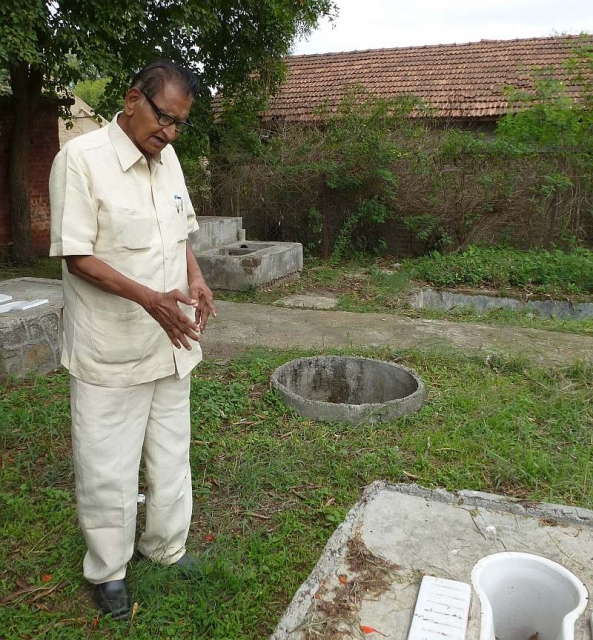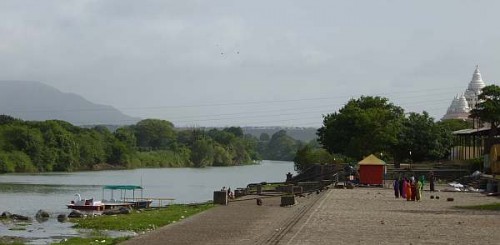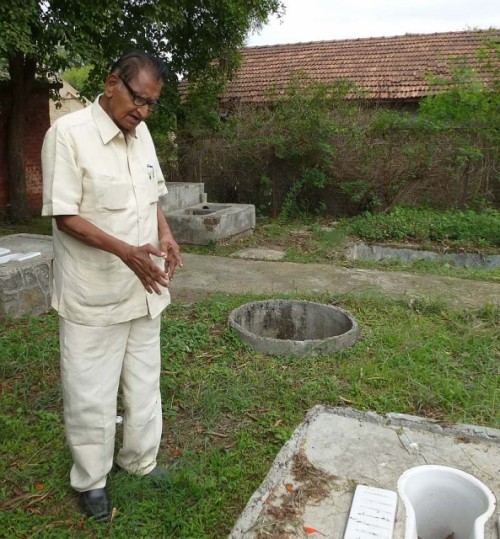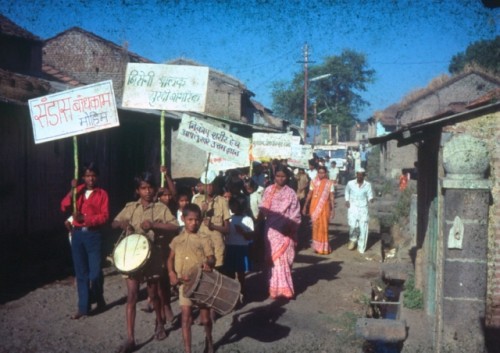TBI Heroes: Dr. Mapuskar – A Life Dedicated To Improving Rural Sanitation In India
Dr. Mapuskar has been working relentlessly in the field of rural sanitation for over 50 years now, and helped develop many innovative methods and technologies to create a sanitation revolution even before it was the rising concern that it is today. His principles of community ownership and his search for appropriate technology that suits the Indian conditions have left a legacy that can be adopted all over the nation for maximum impact. He is truly a TBI Hero.

We are always amazed to see the difference that one individual can bring about with his or her efforts. Here we present the story of Dr. Mapuskar, an unsung hero who has worked relentlessly to ensure that the village he worked in achieved a high level of hygiene and sanitation. He did this through awareness campaigns, experimentation with technology, planning and executing projects by mobilizing the community and making them stakeholders. It is an inspiring story indeed.
Dr. Mapuskar has been working in the field of rural sanitation for the last 50 years. He implemented the principles of appropriate technology and community ownership at a time when these were not part of the national consciousness. Today he continues to be active in the field, advocating the use of decentralised, low cost sanitation options. This article presents his story and a film about his organisation.

The beginning: There were ghosts about, the young doctor was told as he settled down for the night on the hospital verandah. Despite that, he slept well. The true trial came the next morning when he discovered that the hospital did not have a toilet. As he made his way through the village to the forest, he came across a number of the villagers he had met the last evening. Mortified with shame, he made a decision. ‘Never again’, he decided.
That young man was Dr. Mapuskar. Just out of college, he had approached the Directorate of Health Services for a job. The only one was in a village called Dehu, he was told. The young man agreed and moved there. After that memorable first night- and morning – his first self-appointed task was to excavate a simple trench toilet for himself. Used medicine cartons formed the walls of this toilet. The next was to start a revolution.
Early efforts: In the course of his practice, Dr. Mapuskar realised he was never called on to treat more than a handful of illnesses – all hygiene related. He realised that he needed to tackle the cause of the infections. When looking for methods, he came across the book ‘Excreta disposal in rural areas’ published by the WHO. He bought the book, selected a design and constructed 10 toilets. This proved to be an abysmal failure. The designs were not designed for India; all the toilets collapsed in the monsoon. This proved a serious setback to Dr. Mapuskar’s efforts at promoting toilets. The incident also brought home the importance of appropriate technology. He began again to speak with his own staff and with the larger community about the importance of sanitation and hygiene.
The turning point: In 1963, Dr. Mauskar initiated a worm infestation survey. The funds for this were obtained from the Gram Sabha. He achieved 100% coverage of the households, and learned that 86% of the residents were infected with worms. In order to explain the origin, he set up two microscopes, one with a sample of infected faeces and the other with a soil sample. They were found to both have worm eggs. This helped to convince the villagers of the origin of the infection. The entire village was dewormed with medication obtained from the government. He also explained that the medicine required for deworming the village cost Rs.10,000/- and would need to be repeated every thee months. At that time, the cost of a toilet was Rs. 400/-. This went a long way to convince the villagers of the importance of toilets.

The village conducted a massive awareness campaign with processions, household visits, group discussions etc. The procession organised during this campaign ended with a massive meeting attended by nearly all the villagers. A decision to construct Appasaheb Patwardhan’s ‘sopa sandas’ toilets was passed at this meeting. A toilet construction committee was appointed for the actual implementation, with a secretary to manage funds. Households desiring to build a toilet came and deposited Rs. 400/- with the secretary. Any leftover money was handed back to the families. On this no-profit-no-loss principle, 100 toilets were built in a month. By 1980, the village had achieved 90% coverage.
Next steps: In 1980, Dr. Mapuskar began promoting the bio-gas toilets developed by Appasaheb Patwardhan. The first person to adopt these was Mrs. Pardeshi. She was convinced to build two toilets, one for her family and one for the neighbours. The neighbours were charged Rs 5/-per month. Soon, this pay-and-use toilet along with the sale of compost and generation of gas earned the family Rs. 700/- per month against a one-time investment of Rs 1300/-. Today, there are 75 such bio-gas toilets functioning in the village. Over the next 5 years, Dr. Mapuskar modified the original design and developed the Malprabha bio-gas toilet.

Later, decentralised on-site integrated waste management (DOSIWAM) was developed and is now implemented in 25 sites across the country. Dr. Mapuskar also set up two organisations, the Jyotsna Aarogya Prabodhan and the Appasaheb Patwardhan Safai Wa Paryawaran Tantraniketan to work on health awareness and appropriate technology. The team has also been working on bio-gas composters for vegetable waste, monitoring for the Sant Gadgebaba Abhiyaan, and lobbying for policy change in the field of sanitation and hygiene.
If you found our stories insightful, informative, or even just enjoyable, we invite you to consider making a voluntary payment to support the work we do at The Better India. Your contribution helps us continue producing quality content that educates, inspires, and drives positive change.
Choose one of the payment options below for your contribution-
By paying for the stories you value, you directly contribute to sustaining our efforts focused on making a difference in the world. Together, let’s ensure that impactful stories continue to be told and shared, enriching lives and communities alike.
Thank you for your support. Here are some frequently asked questions you might find helpful to know why you are contributing?


This story made me
-
97
-
121
-
89
-
167













